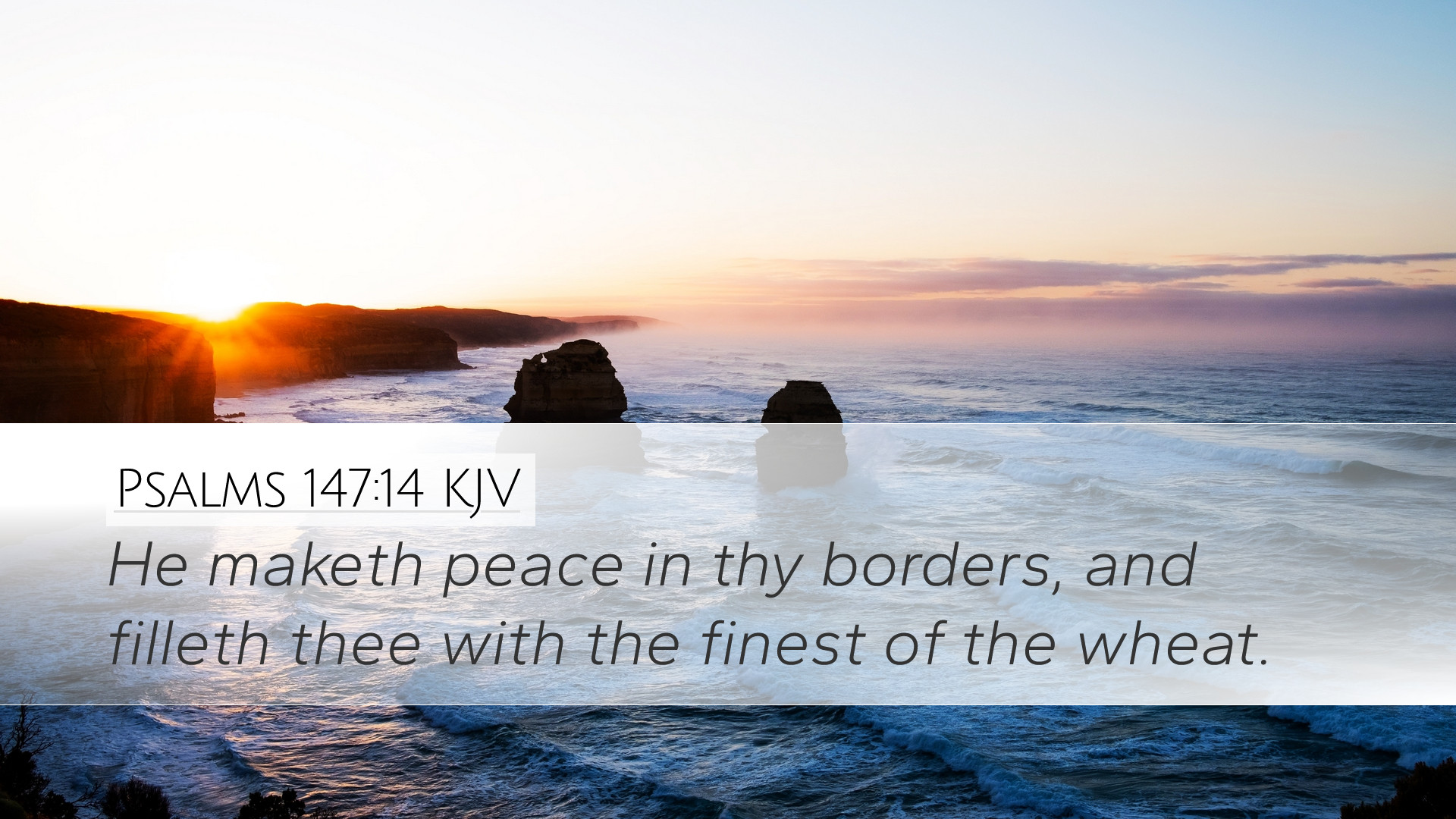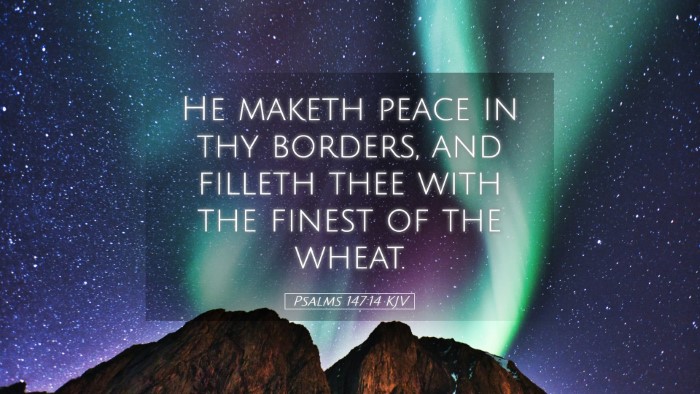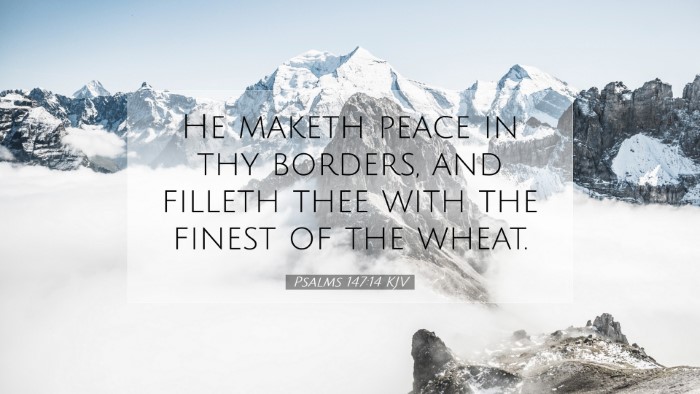Psalms 147:14 - Commentary and Insights
Verse: “He makes peace in your borders and fills you with the finest of the wheat.”
Introduction
This verse encapsulates God's provision and peace for His people. In the midst of life's trials and tribulations, the Psalmist assures us that God has a care for our well-being, both spiritually and materially. This commentary seeks to unpack the profound theological and practical implications of Psalm 147:14 using insights from notable public domain commentaries.
Contextual Background
Psalm 147 is part of the concluding psalms that celebrate the greatness of God and His providential care for His creation. This psalm rejoices in the restoration of Israel after exile and highlights God’s governance over nature and nations. The specific verse, 14, reflects on God’s blessings towards His people, particularly emphasizing peace and sustenance.
Insights from Commentaries
Matthew Henry's Commentary
Matthew Henry emphasizes that peace is one of the greatest blessings God can bestow. In the phrase "He makes peace in your borders," Henry notes that true peace encompasses both spiritual tranquility and national prosperity. The borders symbolize the extent of God’s blessings that are meant to cover the land of His people. Furthermore, Henry interprets "finest of the wheat" as a metaphor for abundance, indicating not just survival but flourishing in all aspects of life. It calls attention to the divine sustenance that brings physical nourishment and joy.
Albert Barnes' Notes
Albert Barnes elaborates on the metaphorical implications of peace and sustenance in this verse. He points out that peace implies safety from external threats and an inner calm that believers ought to experience. He suggests that the “borders” signify not just geographical boundaries but the life of an individual or community enriched by God's presence. The expression of filling "you with the finest of the wheat" highlights that God is capable of satisfying the deepest needs of His creation with the best resources. Barnes emphasizes that this verse serves as a reminder of God’s goodness and bountiful provision to His people.
Adam Clarke's Commentary
Adam Clarke provides a devotional perspective on Psalm 147:14, exploring the significance of peace as a divine gift. He aligns the concept of peace with the broader message of hope and restoration found throughout the psalm. Clarke underscores that filling with "the finest of the wheat" reflects not only physical sustenance but also spiritual nourishment—suggesting that God provides the 'finest' experiences and revelations for the faithful. Clarke also discusses the contrast between the hardships faced by God's people and the divine promise of peace, thus encouraging believers to trust in God's faithful promises during turbulent times.
Theological Implications
The theological themes evident in Psalm 147:14 provide substantial reflection points for scholars, theologians, and pastors. Understanding God's role as a protector and provider requires a robust theological framework that sees God's sovereignty in every aspect of life.
- Divine Sovereignty: God's control over the nations and individual lives assures believers that nothing happens outside His will, including the provision of peace and abundance.
- Providence: The verse encourages an understanding of divine providence, emphasizing that God actively engages in the well-being of His creation.
- Hope in Restoration: Linked to the greater narrative of redemption evident throughout the Psalms, this verse provides hope for restoration in the face of adversity.
Practical Applications
Psalm 147:14 has strong applications for today’s readers. Below are several key takeaways:
- Encouragement in Distress: Believers are reminded that God is present in their troubles, offering peace when the world around them seems chaotic.
- Gratitude for Provision: A call for thanksgiving for both spiritual and material blessings serves to deepen one’s relationship with God through recognition of His gifts.
- Peace as a Witness: Experiencing God’s peace allows believers to be effective witnesses of His grace to others, showing how God transforms lives.
Conclusion
Psalms 147:14 richly illustrates the dual gifts of divine peace and provision. As made evident through the insights of various commentators, the verse not only reassures the faith community of God's attention to their needs but also invites a response of gratitude and faith. For pastors, theologians, and believers alike, it serves as a potent reminder of God’s active role in their lives, encouraging them to seek and embrace the peace which surpasses all understanding.


